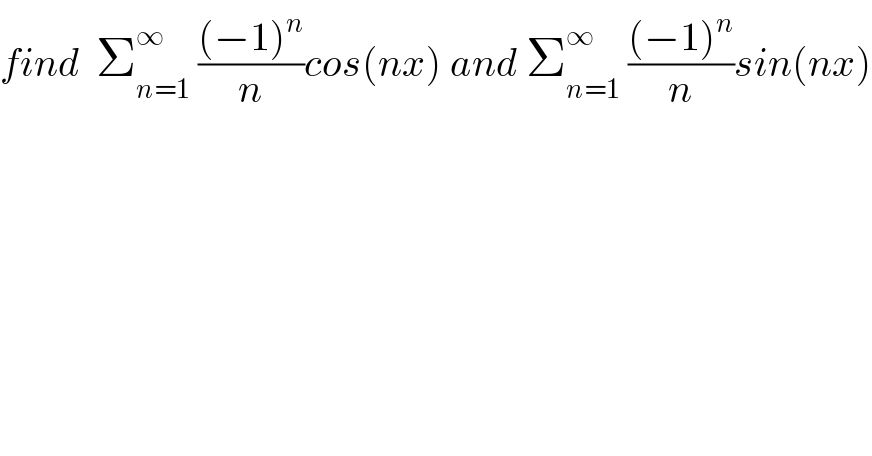
Question and Answers Forum
Previous in Relation and Functions Next in Relation and Functions
Question Number 38942 by math khazana by abdo last updated on 01/Jul/18

Commented by prof Abdo imad last updated on 09/Jul/18

| ||
Question and Answers Forum | ||
Previous in Relation and Functions Next in Relation and Functions | ||
Question Number 38942 by math khazana by abdo last updated on 01/Jul/18 | ||
 | ||
Commented by prof Abdo imad last updated on 09/Jul/18 | ||
 | ||